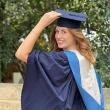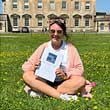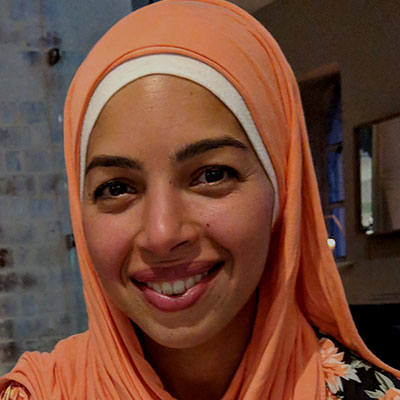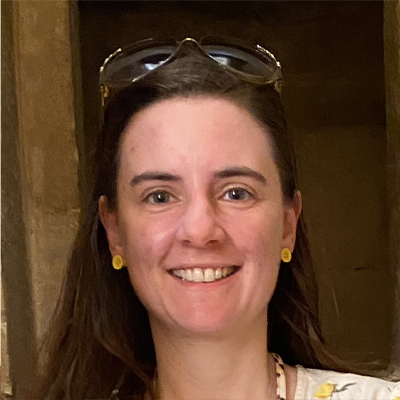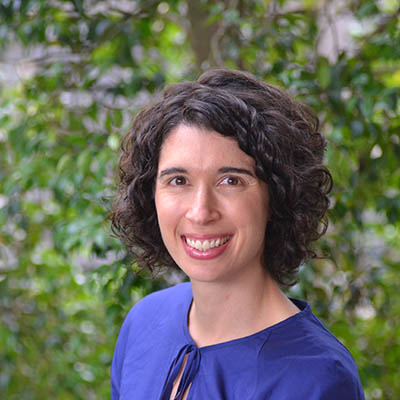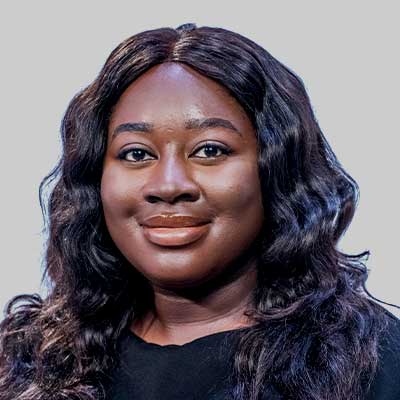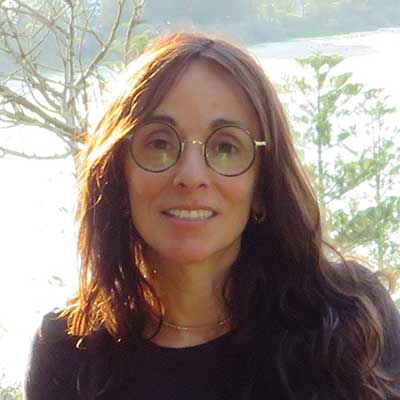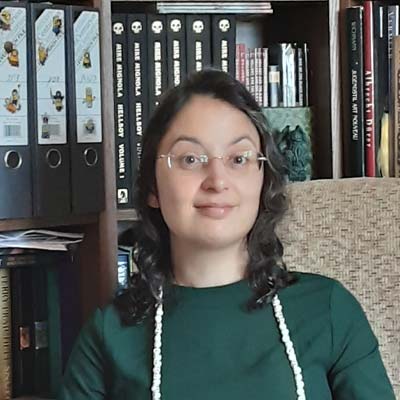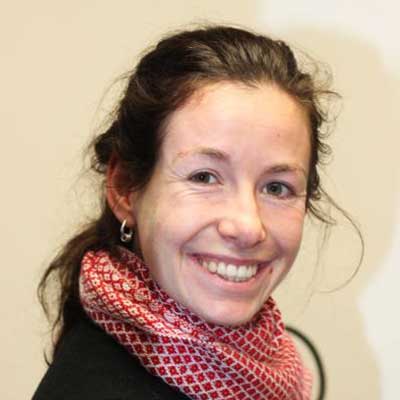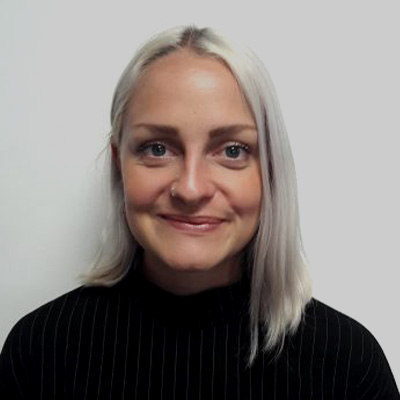Educational Psychology
BSc (Hons)
Undergraduate degree - single honours
- UCAS codes: Institution B20, Course DP10 or DP11 (with professional placement year)
- Educational Psychology - Programme Document
Immerse yourself in the science of learning with our Educational Psychology degree.
- Explore educational policy and practice in order to create change.
- Gain the research and analytical skills you need to investigate and generate new knowledge.
- Take an interdisciplinary approach to understanding how, and in which contexts, individuals learn.
How do we learn as individuals and in groups? And how can policy and practice be changed to support social justice and transform lives?
Our multidisciplinary Educational Psychology degree uses the lens of psychology to explore educational policy and practice – locally, nationally and internationally – in order to create change.
Educational Psychology at Bath Spa has professionalism at its core. We’ll help you identify and nurture your career aspirations throughout all three years of your studies. You’ll also gain real-world experience during a placement in your second year.
You’ll explore the diversity of individuals and the contexts in which they learn. Our aim is that you’ll graduate with the knowledge and skills you need for further study or employment within the educational psychology sector – and beyond.
Accreditation
This course has been accredited by the British Psychological Society (BPS) and provides eligibility for the Graduate Basis for Chartership with the British Psychological Society, provided you achieve a 2.2 overall and pass the final year dissertation. Graduates will have the knowledge and skills for further studies or employment within the education psychology sector and beyond.
"The lecturers have been phenomenal and I would highly recommend investing time into them. They are brilliant at supporting students through this journey, not just academically but personally too."
Bethany Stroud, BSc (Hons) Educational Psychology graduate
Social media
Follow @BSUPsychology on Instagram to read our latest news and see what our Psychology students and staff are up to.
What you'll learn
Our Educational Psychology degree is informed by our Centre for Research in Early Childhood and the Centre for Research on Science and Society, and builds on our externally funded projects on neuroscience in education.
Within this course you'll discover the science of learning in groups and individuals, and gain the research skills you need to investigate and generate new knowledge in the field.
You'll also explore your professional identity through a work placement opportunity in your second year, and use the lens of psychology to explore local, national and international policy and practice in order to transform lives.
Year one
You'll learn the foundational concepts of education and psychology, including human development, the influence of social interactions, the importance of individual differences, how we learn, as well as how, why, and where we educate.
Year two
Deep-dive into scientific ways of knowing, the mind and brain, social influences, and supporting learners with diverse needs. In addition, you'll embark on an embedded professional practice placement through which you'll explore your professional identity.
Year three
Advance your understanding of human development and cognition, apply your knowledge from years one and two to professional contexts. You'll engage with an in-depth research project exploring areas within the intersection of education and psychology, such as health and wellbeing.
Assessment methods vary depending on your exact module choices and can include essays, group presentations, debates, seen examinations, research reports, and portfolios, as well as more authentic forms of assessments (e.g. case studies and policy reports).
This variety of assessment methods and move away from traditional exams builds transferable, work-ready skills, integrating employability throughout the degree.
We’ll provide you with regular feedback on how you're doing and give you regular guidance on how to improve your skills, knowledge and understanding.
Teaching is through a mix of lectures, seminars, individual tutorials and practical workshops.
Seminars are usually more informal than lectures – they're opportunities for you to discuss, ask questions and get involved in activities and debates.
Bookable tutorials enable you to have one-to-one discussions with staff.
- You’ll be taught by experienced and respected University staff. Throughout the course they’ll introduce you to their specialisms and research interests. We also have dedicated Psychology Technicians who are available to support you and enhance your academic experience.
- You’ll also benefit from visiting speakers – these include early childhood setting leaders, play therapists, children’s services, educational advisers, specialist researchers and international visitors.
- Through our Virtual Learning Environment (VLE), you'll have access to a variety of resources, including lecture and seminar materials, datasets, and academic papers. The VLE also features forums for questions and discussions with fellow students and staff.
- At the start of your studies, you'll be allocated an Academic Advisor who will support you throughout your time at BSU. This provides you an opportunity for regular meetings to discuss your personal goals and development, helping you to make the most of your studies.
To find out more about how we teach and how you'll learn, please read our Learning and Teaching Delivery Statement.
Course modules
This course offers or includes the following modules. The modules you take will depend on your pathway or course combination (if applicable) as well as any optional or open modules chosen. Please check the programme document for more information.
- Introduction to Psychology (BPS)
- Research Methods in Psychology 1 (BPS)
- Individual differences - Personality and Intelligence (BPS)
- Education for Change
- Controversial Issues in Special and Inclusive Education
- Introduction to Educational Psychology
- Research Methods in Psychology 2 (BPS)
- Cognitive and Developmental Psychology (BPS)
- Biological and Social Psychology (BPS)
- Supporting Learners with Additional Needs
- Professional Practice in Schools
- Environment and Education
- Youth in Society - Power, Politics and Participation
- Education, Social Inequalities and Social Justice
- Professional Placement Year
- Dissertation (BPS)
- Contemporary Application of Psychological Science (BPS)
- Health, Education and Wellbeing
- Professional Practice: Supporting the Dyslexic Learner
- Advanced Educational Psychology
- Social and Educational Inclusion
"I was fortunate to receive numerous opportunities, including a part-time role as a research assistant while studying, which inspired my future career path in research... Thanks to the exceptional support I received during my three years, I am now continuing my academic journey by pursuing a PhD."
Tiffany McEwan, BSc (Hons) Educational Psychology graduate








Opportunities
We encourage you to undertake placement opportunities, especially in your second year. We offer an embedded placement within the Professional Practice in Education module during the second year.
Students who take advantage of the Global Citizenship programme can use their scholarship to support the option of undertaking an international placement.
Our students also make use of part-funded Santander internship and placement opportunities.
Previous students have worked with charities, youth centres, local authorities, and third-sector organisations such as museums, as well as schools and early years settings.
This degree will prepare you to work in a number of different sectors or further study/training.
After completing your degree, you may choose to work in:
- Mainstream and/or Special Education settings
- Local government and community organisations
- Charities and Non-Government Organisations (NGOs)
- Research
- Prison services.
Those with backgrounds in educational psychology may undertake further study/training to become:
- Professional psychologists (e.g. educational psychologists)
- Counsellors
- Community, social and public service teachers.
With the skills gained on our educational psychology degree, you’ll be well suited to undertake postgraduate education at Master's and PhD levels, and be able to apply for PGCE courses.
You'll be eligible for Graduate Basis for Chartership with the British Psychological Society (provided you achieve a 2.2 overall and pass the final year dissertation), allowing you to apply directly for postgraduate training in order to work towards becoming a professional psychologist.
Our graduates are highly sought after by employers in both the private and public sectors, with 90% working or in further study within 15 months of completing their studies, according to the Graduate Outcomes Survey 2021-2022.
You will have access to BSU’s Careers and Employability team, who offer one-to-one careers advice, including CV support, to help you achieve your career goals. The team also provides a range of support services for recent BSU graduates, guiding you through the next steps in your career post-degree.
At the end of the academic year, we award prizes to recognise achievements in academic success and reward effort and excellence. Prizes specific to Psychology are:
- Oxford University Press Prize for best dissertation.
The Research Certificate Scheme aims to connect students with an interest in participating in the research process beyond their research methods/dissertation studies with researchers in the School of Sciences to offer students ‘research experience’ and give them a ‘flavour’ of the different activities that researchers perform.
The scheme runs each semester and generally involves between one and four hours of work per week, collaborating with academic staff on projects across a range of topic areas.
Past projects have included:
- Using EEG (electroencephalography) to investigate motor imagery
- Developing campaigns to reduce sexual violence
- Reconstructing climate in Interior Alaska: 15,000 years to present
- Blue prescribing: exploring the effects of water sports on mental health and well-being
- Learning communities: Educational solidarity during international fieldwork
There are multiple benefits to taking part in the scheme. It provides students with the opportunity to gain first-hand experience of research – from design and gaining ethical approval, to qualitative interviewing and conducting field/lab research.
Students work with expert scientists at the University to gain valuable employability and ‘real-life’ experience, facilitating the transition to work and further study. Students who complete the scheme also receive a letter and certificate of completion.
“I found the scheme enjoyable as the topic I chose had data about heart rate and skin conductance. It was interesting learning how to sort through research data and the effort that's needed. I also had fun helping the researcher try out the new EEG equipment for another study.
Learning how research is actually done (rather than just reading journals about studies) was definitely a benefit of research experience, as it shows another path of psychology that students can go down in the future.
Plus gaining skills with new software along with analysing data is a brilliant new skill to acquire and potentially helpful for thinking about dissertations.”
– Evan Robshaw, BSc (Hons) Educational Psychology student
To find out more about wider research within the School of Sciences, please visit the Centre for Research on Science and Society webpage.
Run by students, the Psychological Society offers a variety of academic and social activities throughout the year to enhance your journey in Psychology at BSU.
Previous opportunities have included talks and workshops from lecturing staff, drop-in study support sessions, and quiz and film nights.
For more information, visit the Psychological Society’s webpage or check out their Instagram page (@BSU_Psych_Soc) to see what they've been up to.
If you’re a full-time undergraduate student starting your first year at Bath Spa University, you can apply for the Certificate in Global Citizenship, which you’ll study alongside your degree.
You’ll gain global awareness and add an international dimension to your student experience, and funding is available. On successful completion of the programme, you’ll be awarded a Certificate in Global Citizenship. This is in addition to your degree; it doesn’t change your degree title or results.
Facilities and resources
This Psychology course is taught at our Newton Park campus.
You'll have access to a wide range of excellent facilities including:
- Commons building
- Newton Park library
- Virtual Learning Environment
- Academic Skills (ASk)
- Specialist resources and subject librarian
- English Language Unit (if English isn’t your first language)
You’ll benefit from the multiple research hubs dedicated to the study and advancement of knowledge in areas across educational psychology including:
- The Research Centre for Transnational Creativity and Education (TRACE), which looks to innovate ways of thinking and making across the cultures of creativity and education;
- The Centre for Research in Early Childhood, which is concerned with issues of social justice, participation and voice in early childhood;
- The Centre for Research in Scientific and Technological Learning and Education (CRSTLE), which aims to inform and improve scientific and technological engagement across educational settings.
Teaching resources includes access to psychology specific journal articles through PsycINFO and PsycARTICLES, as well as EBSCO (online access to over 400 Psychology-related journals).
Various specialist software, such as SPSS (statistical computer software for analysing quantitative data) and NVivo for qualitative data analysis can be freely accessed by students, whilst Qualitrics and PsychoPy are available for use during dissertation research.
We also have a large battery of psychometric and neuropsychological tests for use.
You will have access to our newly refurbished Psychology laboratory spaces, equipped with specialist equipment for dissertations, staff research, and relevant modules.
These facilities include an eye-tracking lab with a Tobii eye-tracker, a Neuropsychology lab with EEG and tDCS equipment, an interview and observational room with a one-way mirror, and an experimental lab with individual testing cubicles for simultaneous computer-based experiments.
Our dedicated Psychology Technicians are available to support you in using the equipment and lab spaces, and students can also hire various equipment using SISO, Bath Spa University’s free equipment loan service.
All modules can be found on our Virtual Learning Environment, Ultra, providing unlimited online access to learning materials such as handbooks, lecture slides, assessment information, discussion boards and other resources.
You can also take advantage of the learning support provided across the wider University, such as:
- The Academic Skills service to develop your writing skills or learn how to use new techniques and technologies.
- Our Library gives you access to books, academic journals and DVDs and an extensive range of electronic services. It also provides a place for individual study and collaborative work.
- The Careers team run networking events and advisory workshops that explore your future options and the essentials of the job application process. They help you get experience by assisting with your search for work placements and paid part-time jobs while you're studying. When you're ready to progress into your chosen career, they can help you secure graduate-level employment, freelance opportunities, and funding for your own business ideas. Career support continues for years after you graduate with the dedicated Grad Support Unit.
- Our Student Wellbeing Services are also available to support you through your learning.
Develop a wealth of indispensable digital skills that you can take into your future career. One of only three Adobe Creative Campuses in the UK, we provide all Bath Spa students with access to the full Adobe Creative Suite, giving you the tools to communicate creatively, whatever your course or chosen professional field.
Professional placement year
The Professional Placement Year (PPY) provides you with the opportunity to identify, apply for, and secure professional experience, normally comprising one to three placements over a minimum of nine months. Successful completion of this module will demonstrate your ability to secure and sustain graduate-level employment.
By completing the module, you'll be entitled to the addition of 'with Professional Placement Year' to your degree title.
Before your PPY, you'll work to identify roles of interest and secure a placement. The Placements Team will support through timetabled sessions and 1:1 appointments.
As well as completing a minimum of 900 placement hours, you will complete two assessments demonstrating your skill development, growth in professional behaviours and how the PPY has impacted your future career aspirations.
Fees
| Student | Annual tuition fee |
|---|---|
| UK full time | £9,535 |
| UK part time | £4,768 |
| International full time | £16,460 |
Professional Placement Year
During the placement year, the fee is reduced to 20% of the full time fee. This applies to UK and EU/International students.
- UK: £1,905
- International: £3,292
Additional course costs
You may need to pay additional course costs over and above your tuition fees, for example, for specialist equipment or trips and visits. Please check the course Programme Document (linked under the main image on this page) for details of any additional costs. You can also read our Additional Course Costs Policy for further information.
Funding opportunities
Please visit our Funding pages for an overview of the funding options that may be available, including scholarships and bursaries.
Interested in applying?
We're looking for critical and compassionate students who are committed to working with and supporting children, young people and adults.
An interest in human behaviour and the systems in which we exist is fundamental to the degree. We also welcome those who are curious about what we know, and the research processes by which we find out.
We accept a wide range of qualifications for entry to our undergraduate programmes. The main ones are listed below:
- A Level – grades BBB-BCC. If studying Psychology, then a Grade B or higher is required. If Psychology is not an option at your school or college, then another A Level subject will be accepted, but a keen interest in psychology will need to be described in your personal statement.
- BTEC – Extended Diploma grades from Distinction Distinction Merit (DDM) to Distinction Merit Merit (DMM) in a related subject. Applicants will need to show a keen interest in psychology in the personal statement.
- T Levels – grade Merit preferred in a relevant subject.
- International Baccalaureate - a minimum of 32 points are required. Applicants will need to show a keen interest in psychology in the personal statement.
- Access to HE courses – typical offers for applicants with Access to HE will be the Access to HE Diploma or Access to HE Certificate (60 credits, 45 of which must be Level 3, at Merit or higher). Applicants will need to show a keen interest in psychology in the personal statement.
If you don’t meet the entry requirements above, we may be able to accept your prior learning or experience from outside of formal education. See our Accreditation of Prior Learning (APL) page to learn more.
English Language Requirements for International and EU Applicants
IELTS 6.0 - for visa nationals, with a minimum score of IELTS 5.5 in each element.
Course enquiries
For further information about the programme or entry requirements, please email us at admissions@bathspa.ac.uk.
Please be aware that some modules on this course require students to obtain an enhanced DBS check with children's barred list check and subscribe to the update service. This will incur a cost. For more information, please visit our additional costs page.
- Enhanced DBS check
- The Disclosure and Barring Service check is a legal requirement for anyone coming into contact with children or young people. It usually takes a few weeks but this can be longer in the summer months. Overseas applicants or those who have lived overseas for more than six months in the last five years will also require a police certificate of good conduct from the relevant country.
Ready to apply? Click the "apply now" button in the centre of this page.
Need more guidance? Head to our how to apply pages.
Course leader: Dr Hannah Lewis
Email: h.lewis@bathspa.ac.uk
Three year course
With placement year
- Award
- BSc (Hons) Educational Psychology
- School/s
- School of Education, School of Sciences
- Campus or location
- Newton Park
- Course length
- Three years full time, or four years full time with professional placement year. Part time available.
- UCAS codes
- Institution Code: B20
- Course Code: DP10 or DP11
- Campus Code: A,BSU
Entry requirements
We accept a wide range of qualifications for entry to our undergraduate programmes. The main ones are listed under 'Typical offers' in the main column below. For combined courses, please check both subjects. If your qualification is not listed, please email admissions@bathspa.ac.uk with your specific details.


